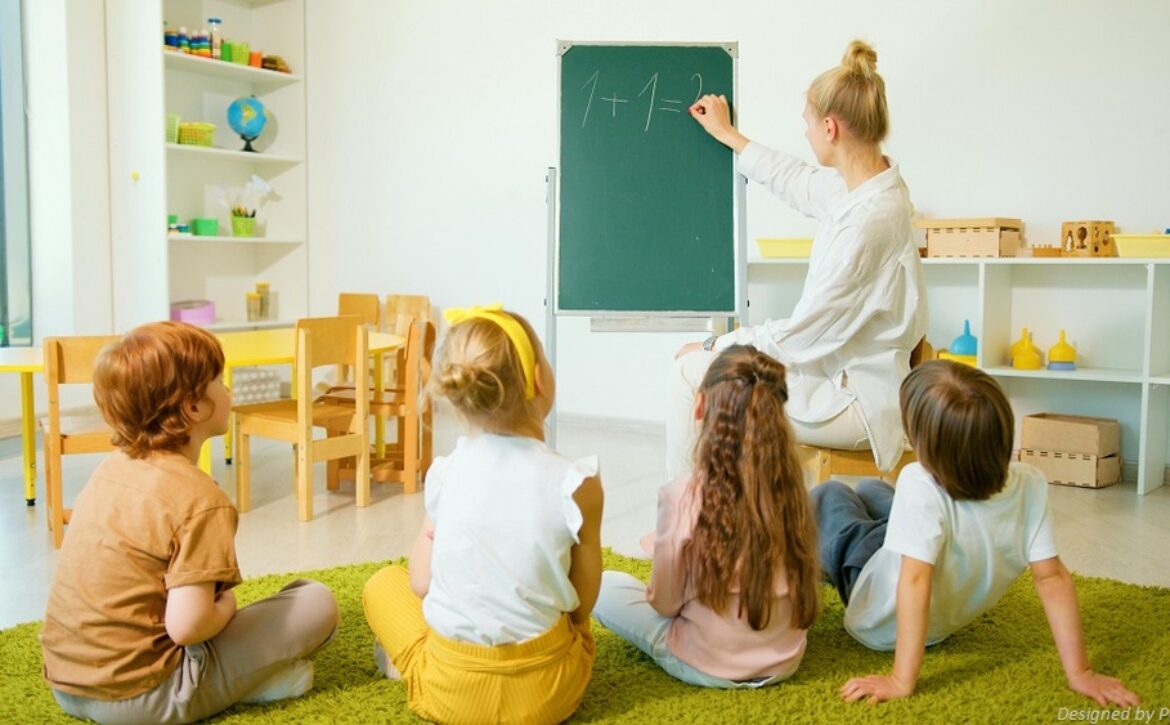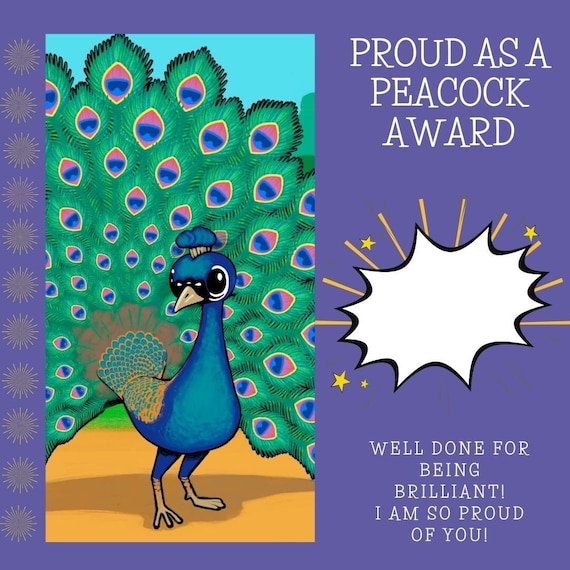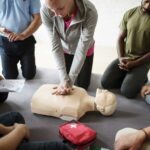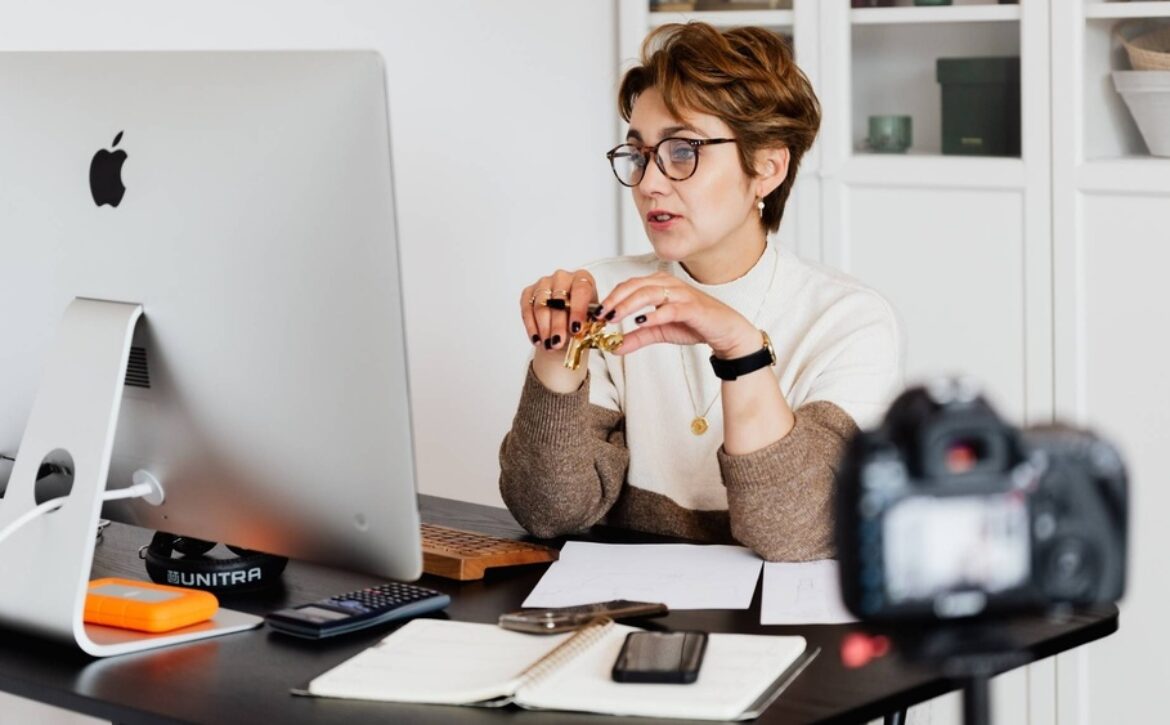
How to Become an EYFS Teaching Diploma: Step-by-Step Guide
Are you passionate about shaping young minds and nurturing the next generation? Do you dream of making a lasting impact on children’s lives during their most formative years?
If so, becoming an EYFS (Early Years Foundation Stage) teacher might be your perfect path. But how do you get there? The journey to earning an EYFS Teaching Diploma might seem daunting, but with the right guidance, you can achieve it with confidence and ease.
You’ll discover the essential steps to kickstart your career in early childhood education. We’ll break down the process into manageable steps, ensuring you understand exactly what you need to do and why it’s important. By the end, you’ll feel equipped and motivated to take the next step toward a fulfilling career in early years education. Keep reading, and let’s transform your passion into a profession.
Understanding Eyfs Teaching
Embarking on a career in Early Years Foundation Stage (EYFS) teaching can be rewarding. This role involves nurturing young minds in their formative years. Understanding the EYFS framework is crucial for aspiring educators. This framework sets the standards for learning and care for children from birth to age five.
What Is Eyfs?
EYFS stands for Early Years Foundation Stage. It is a framework used in the UK to support children’s learning and development. It covers education from birth to age five. EYFS focuses on play-based learning. It aims to provide a well-rounded early education.
Importance Of Eyfs In Early Childhood Education
EYFS plays a crucial role in early childhood education. It lays the foundation for lifelong learning. It fosters a love for learning in young children. The framework ensures that children develop key skills. These skills include communication, problem-solving, and social interaction.
By following EYFS, teachers support children’s physical and emotional development. It also helps in identifying specific needs early. This approach ensures personalized learning experiences. EYFS creates a safe and nurturing environment. Children feel encouraged and confident to explore and learn.
Eligibility Requirements
To pursue an EYFS Teaching Diploma, candidates need a high school diploma or equivalent qualification. Prior experience in childcare or early education enhances eligibility. A passion for nurturing young minds is essential.
Embarking on the journey to earn an EYFS (Early Years Foundation Stage) Teaching Diploma is a rewarding decision. It opens doors to shaping young minds during their most formative years. But before you dive in, it’s crucial to understand the eligibility requirements that pave the way for this career.
Educational Qualifications
To qualify for an EYFS Teaching Diploma, you typically need a foundational educational background. Most programs require at least a high school diploma or equivalent. Some institutions may prefer candidates who have completed courses in child development or psychology. A personal story from a friend highlights the importance of relevant education. She started with a high school diploma but found her psychology coursework invaluable when applying for the diploma. Her prior knowledge gave her a head start, making her application stronger.
Skills And Competencies Needed
Being an EYFS teacher is not just about academic qualifications. It demands a set of skills and competencies that are vital for success. You need patience, creativity, and a genuine love for working with young children. Think about your own experiences. Have you ever been in a situation where patience was key to resolving a challenge? That’s a daily scenario in an EYFS classroom. Also, creativity is your best ally. You’ll be crafting engaging activities and lessons. Can you think of a creative project you’ve enjoyed? Those experiences can translate into effective teaching strategies. In addition to these, strong communication skills are essential. You will interact with parents, colleagues, and children. Clear communication fosters a positive learning environment and builds trust. Consider if you’re comfortable and effective in conveying ideas to diverse audiences. With these educational qualifications and skills in mind, are you ready to take the first step towards an EYFS Teaching Diploma?
Choosing The Right Course
Choosing the right course for your EYFS (Early Years Foundation Stage) Teaching Diploma is a crucial step in your journey to become an effective educator. It’s not just about picking any course; it’s about selecting one that aligns with your career goals and personal values. Imagine being in a classroom where you can confidently apply your skills to foster young children’s development. That’s the power of choosing the right course.
Types Of Eyfs Teaching Diplomas
There are several types of EYFS teaching diplomas available, each with its unique focus and structure. Some courses emphasize practical teaching skills, while others delve deeper into the theoretical aspects of early childhood education. Consider what you want to gain from your diploma. Do you prefer hands-on experience, or are you more interested in understanding child psychology?
Perhaps you want a diploma that offers a balanced mix of both. Look for courses that provide real-world teaching practice, such as internships or placements. These experiences can be invaluable in preparing you for the challenges of a classroom setting.
Accredited Institutions
Choosing a course from an accredited institution ensures the quality and recognition of your diploma. Accredited programs often meet higher standards and are valued by employers. Research institutions that are well-known for their early childhood education programs. You might find that some offer unique benefits, such as partnerships with local schools or exclusive workshops.
Additionally, check if the institution provides support services like career counseling or networking opportunities. These can help you transition from a student to a professional. Think about the long-term benefits of studying at a reputable institution. Will it open doors for you in the job market?
In your search, remember to consider factors like location, costs, and course duration. Balancing these elements with the quality of education is key to making the best decision for your future.
Choosing the right course is more than just a step; it’s a leap towards a fulfilling career in early childhood education. How will you choose yours?
Application Process
Applying for an EYFS Teaching Diploma is your first step towards a rewarding career in early childhood education. The application process is crucial, as it showcases your passion, commitment, and readiness to embark on this educational journey. Whether you’re transitioning from another field or starting fresh, understanding the steps can make your application stand out. Let’s break down what you need to do to prepare.
Preparing Your Application
Preparation is key when it comes to applying for the EYFS Teaching Diploma. Start by researching the institutions offering this diploma. Look for those with strong reputations and student support systems.
Next, consider your personal statement. This is where you can express your enthusiasm for early childhood education. Highlight any relevant experiences, such as volunteering at a nursery or tutoring young children.
Think about what makes you unique. Have you ever had a moment when a child’s curiosity inspired you? Share it. Such personal insights can make your application memorable.
Necessary Documentation
Gathering the right documents is essential. Begin with your educational certificates. Ensure they are up-to-date and accurate.
You’ll also need references. Choose individuals who can speak to your character and dedication. Former teachers, employers, or mentors can provide strong endorsements.
Don’t forget identification documents. A passport or driver’s license usually suffices. Double-check the requirements of your chosen institution so you don’t overlook anything.
Finally, ask yourself: What does your documentation say about you? Is there a gap you need to address or a strength you should emphasize?
Remember, each detail in your application paints a picture of your potential as an EYFS educator. By taking the time to prepare thoroughly, you’ll position yourself as a candidate who is ready to make a difference in young lives.
Course Curriculum Overview
Embarking on the journey to acquire an EYFS Teaching Diploma opens up a world of opportunities to shape young minds during their most formative years. Understanding the course curriculum is crucial, as it lays the foundation for your development as an effective educator. With a blend of core modules and practical training components, the curriculum is designed to equip you with the knowledge and skills needed to thrive in an Early Years setting.
Core Modules
The core modules form the backbone of the EYFS Teaching Diploma. They cover essential topics that every aspiring teacher needs to master.
You will delve into child development, exploring how children grow and learn in different stages. This understanding helps you tailor your teaching strategies to meet their needs.
Another vital module focuses on early childhood education theories. These theories provide insights into various teaching methods, allowing you to adapt your approach in the classroom.
Classroom management is also a crucial part of the curriculum. You learn techniques to maintain a positive learning environment, ensuring children feel safe and engaged.
Practical Training Components
Learning isn’t confined to textbooks. The practical training components offer hands-on experience that is invaluable in the teaching profession.
You’ll participate in supervised teaching sessions, where you apply what you’ve learned in real-world settings. This practice helps build confidence and refine your teaching skills.
Classroom observations allow you to see experienced teachers in action. You gain insights into effective teaching strategies and classroom dynamics.
Reflective practice is encouraged throughout your training. You assess your experiences, identifying strengths and areas for improvement, fostering a cycle of continuous learning.
As you progress, consider how these components will impact your future classroom. How might you use your knowledge to inspire creativity and curiosity in young learners?
The combination of theoretical knowledge and practical experience ensures you’re well-prepared to make a meaningful impact in early childhood education. Are you ready to take the next step in your teaching journey?
Gaining Practical Experience
Gaining practical experience is key to becoming an effective EYFS teacher. Real-world experience helps you understand classroom dynamics better. It builds confidence and prepares you for challenges. Let’s explore ways to gain this experience.
Internships And Placements
Internships offer hands-on learning in a real classroom setting. They provide a chance to work closely with experienced teachers. This is an opportunity to apply theoretical knowledge practically. Many institutions offer placements as part of their diploma programs. These placements help you learn about curriculum planning and student interaction. You’ll also understand the importance of adapting teaching methods.
Volunteering Opportunities
Volunteering is a great way to gain experience without formal commitments. Schools and community centers often welcome volunteers. This helps you observe and participate in various educational activities. Volunteering builds your network within the education community. It enhances your understanding of different teaching styles and practices. Being proactive and seeking these opportunities can be rewarding. It develops skills that are essential for your teaching career.
Certification And Licensing
Embarking on a career in Early Years Foundation Stage (EYFS) teaching requires certification and licensing. These qualifications ensure you meet the necessary standards to educate young children. They verify your understanding of essential teaching concepts and practices.
Exam And Assessment Procedures
To earn your EYFS teaching diploma, exams play a crucial role. These assessments evaluate your knowledge of early childhood education principles. Expect questions on child development, learning strategies, and classroom management.
Practical assessments are often part of the process. These involve demonstrating teaching skills in real-world settings. Feedback from these sessions helps improve your teaching methods. Preparing thoroughly for both written and practical exams is essential. Study guides and practice tests can aid in this preparation.
Obtaining Your Teaching License
After passing exams, you need a teaching license to work legally. This license proves your competence and readiness to teach young learners. The licensing process varies by region, so check local requirements.
Submitting your diploma and exam results is typically required. Background checks and references may also be necessary. Once licensed, you can apply for EYFS teaching positions. Regular renewal of your license ensures you stay updated with teaching standards.

Career Opportunities
Exploring career opportunities in Early Years Foundation Stage (EYFS) is rewarding. With an EYFS Teaching Diploma, numerous paths open. These opportunities nurture young minds and shape futures. The demand for qualified educators in early childhood education keeps growing. This growth offers a secure and fulfilling career.
Job Prospects In Eyfs
The EYFS teaching diploma opens doors to various roles. You can become a nursery teacher, focusing on children aged 0-5. This role involves creating a nurturing and educational environment. Another option is working as a teaching assistant. This position supports lead teachers and helps manage classroom activities.
Preschool teacher roles are also available. In these positions, you develop foundational skills in children. Schools and private institutions often seek professionals with EYFS training. This demand creates a steady flow of job opportunities.
Advancement And Specialization Paths
With experience, advancement opportunities increase. You might move into senior teaching roles. Leadership positions such as head of early years are common. These roles involve supervising staff and developing curricula.
Specialization offers another path. Focus areas include special educational needs (SEN) or educational leadership. Pursuing further qualifications can enhance career prospects. Courses in child psychology or educational management are beneficial.
Networking with other professionals is crucial for career growth. Attending workshops and seminars provides learning and networking opportunities. This engagement can lead to collaborations and new job prospects.
Continuing Professional Development
Continuing Professional Development (CPD) is essential for anyone pursuing an EYFS Teaching Diploma. It’s about constantly learning and growing in your teaching career. CPD helps you stay updated with the latest teaching strategies and educational research. It also enhances your skills, making you a more effective educator.
Workshops And Seminars
Workshops and seminars are a fantastic way to sharpen your teaching skills. They offer hands-on experience and practical insights into the latest educational trends.
Attending these events allows you to meet other educators. Sharing experiences with peers can spark new ideas and solutions to classroom challenges.
Look for workshops that focus on specific areas of EYFS, like creative learning or child development. They can provide valuable strategies to implement in your classroom.
Further Education Options
Continuing your education can significantly boost your career. Consider enrolling in courses related to child psychology or educational leadership.
Online courses offer flexibility, allowing you to learn at your own pace. You can balance them with your teaching responsibilities effectively.
Universities often offer advanced diplomas or certifications. These qualifications can open doors to leadership roles in early years education.
Have you thought about how further education could transform your teaching approach? It’s worth exploring the possibilities.
Whether through workshops or further education, CPD is your pathway to becoming a better educator. Dive into these opportunities and watch your teaching skills soar.
Frequently Asked Questions
What Is An Eyfs Teaching Diploma?
An EYFS Teaching Diploma is a qualification for teaching in Early Years Foundation Stage settings. It equips educators with skills to support young children’s development. The diploma covers child psychology, learning strategies, and curriculum planning. It is essential for anyone pursuing a career in early childhood education.
How Long Does Eyfs Diploma Take?
Typically, an EYFS Teaching Diploma takes one to two years to complete. The duration may vary depending on the institution and mode of study. Some courses offer part-time or distance learning options. This allows flexibility for students balancing other commitments.
What Qualifications Are Needed For Eyfs Diploma?
To enroll in an EYFS Teaching Diploma, you typically need GCSEs or equivalent qualifications. Some programs may require A-levels or relevant work experience. It’s advisable to check specific entry requirements for each course. A passion for early childhood education is also essential.
Can Eyfs Diploma Lead To Teaching Career?
Yes, an EYFS Teaching Diploma can lead to a rewarding teaching career. Graduates often work in nurseries, preschools, and early years settings. The diploma prepares educators to support children’s development effectively. It can also open doors to further education and specialized roles in early childhood education.
Conclusion
Becoming an EYFS Teaching Diploma holder is a rewarding journey. This path equips you with skills to inspire young minds. Start by researching accredited courses. Choose one that fits your schedule and goals. Study diligently and gain practical experience. Connect with educators and join teaching communities.
They offer valuable support and insights. Practice patience and creativity in your teaching. Each child learns differently. Celebrate small victories and stay motivated. Your dedication will shape future generations. Remember, every step brings you closer to your dream. You have the power to make a difference.
Keep moving forward with passion and commitment.




